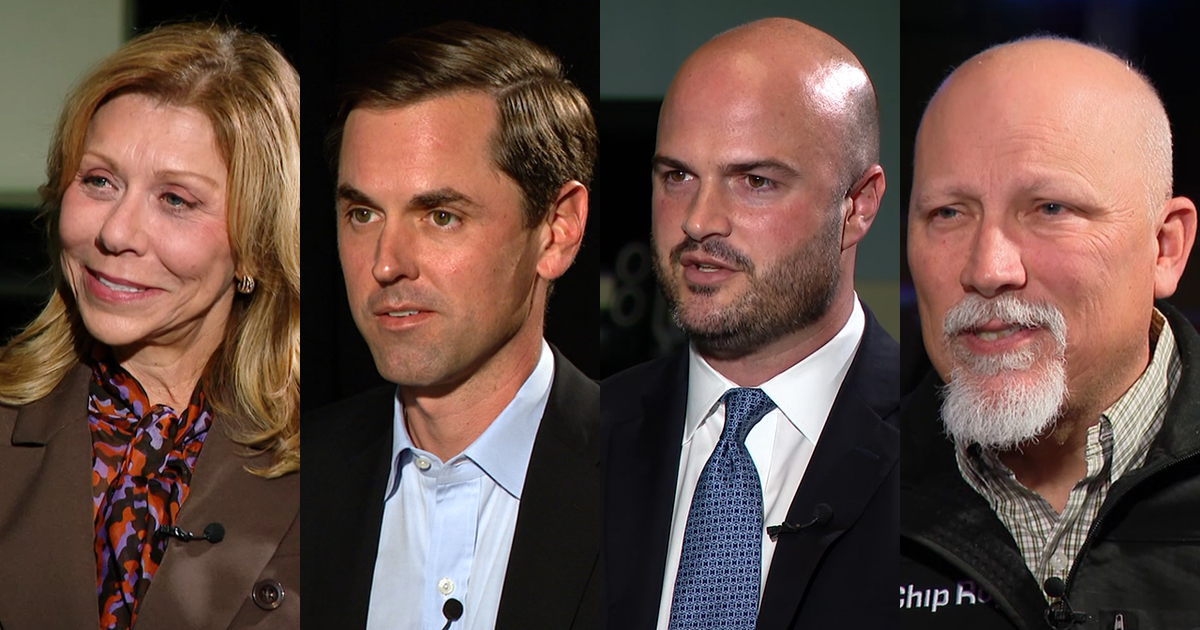Democrats look to scuttle "virtual caucuses" in Iowa, Nevada
The Democratic National Committee recommended Friday that Iowa and Nevada scrap their plans to hold "virtual caucuses" during their presidential nominating contests next year.
The DNC released a memo from their security team that said, "Based on our review process and the recommendation of security experts, we have concluded that currently, there is no tele-caucus system available that is sufficiently secure and reliable, given the magnitude and timing of the Iowa and Nevada caucuses this cycle."
In an effort to expand voter participation, the DNC told states to switch to primaries or find a way for more people to participate in the caucuses. Caucuses tend to attract fewer voters because they are held in a specific location at a set time and are subject to sometimes byzantine rules. Primaries, meanwhile, more closely resemble regular elections.
Iowa Democrat Party Chair Troy Price told reporters Friday following the news that, "Iowa will be a caucus and Iowa will be first," and said DNC Chairman Tom Perez assured him of being first in a phone call today. Meanwhile, New Hampshire Secretary of State Bill Gardner told reporters that New Hampshire would remain the first primary state, and that if Iowa did not hold caucuses, he could move his state's primary to December.
Iowa and Nevada proposed "tele-caucusing" as a way to fulfill the DNC's requirement for increased participation. The proposal would have allowed people to rank their top choices for the Democratic nominee over the phone.
The DNC's Rules and Bylaws Committee (RBC), which approves delegate plans, will vote on how to proceed. But the co-chairs of the committee as well as Perez released a statement encouraging the RBC to vote down the virtual caucus plans for this cycle.
"We are recommending to the committee that virtual caucus systems not be used in the Iowa and Nevada 2020 caucus processes, and unless compliance can be met through other means, that the committee consider a waiver," the chairs said in a statement.
In their next meeting, the RBC could give Iowa a waiver so they don't have to comply with the mandate, or the state could modify its plan in a way that appeases the DNC.
The RBC could vote to approve Nevada's plan without the tele-caucus component because Nevada has introduced different measures this cycle to comply with the DNC's requirement of increased participation. Nevada Democrats will host four days of in-person early voting and caucus sites on the Las Vegas Strip.
The security concerns were addressed in a meeting in San Francisco last week. Earlier this month, a security expert had discovered a vulnerability on the website of a potential virtual caucus vendor being considered.
There were also reports that experts hired by the DNC to find potential vulnerabilities in the system had been able to hack a conference call where the virtual caucuses were being discussed. However, three sources familiar with the call told CBS News that it was never hacked.
In June, members of the RBC said the plans proposed by Nevada and Iowa were in "conditional approval." The states were able to move forward with their plans as long as they worked to address concerns that RBC members raised.
Nevada State Democratic Party Chair William McCurdy released a statement following the release of the memo that points out that the RBC had ample time to address this earlier.
"In June of 2018, the DNC Rules and Bylaws Committee passed a rule requiring state parties to provide voters with an absentee process in the primary process. In complying with this requirement, NV Dems published--in March of 2019--a uniquely Nevada Delegate Selection Plan that reflects our voters and the communities we live in," McCurdy said.
"Part of that plan included a virtual caucus option that allowed Nevada Democrats who, for any reason, are unable to attend on Caucus Day the ability to participate from home or on the go using just their cell phone or landline. Unfortunately, The DNC has advised we not go forward with this process due to threats against our Democratic infrastructure and Republican inaction to prevent future attacks in the upcoming election cycle."
Iowa Chairman Price's statement in response to the DNC recommendation also points out the limited time they have to come up with a new plan.
"While only five months remain before the caucuses, we will explore what alternatives may exist to securely increase accessibility from previous years given the time allowed. We're dedicated to expanding accessibility throughout the process so that no Iowan faces a barrier at their caucus. We are confident that this will be resolved in the coming weeks."
Former Housing and Urban Development Secretary Julián Castro also blasted the move.
"As I've campaigned in every corner of Iowa, I've heard from teachers, home care workers, nurses, single parents, shift workers, and senior citizens who tell me the same thing: one night of caucusing is not enough," the 2020 presidential candidate said in a statement.
"Protecting the integrity of our elections is a critical concern. But with only 157 days until the Iowa caucus, the DNC's feet-dragging has done a serious disservice to Democratic voters and the principle of a fair, accurate, and unburdensome primary or caucus."



